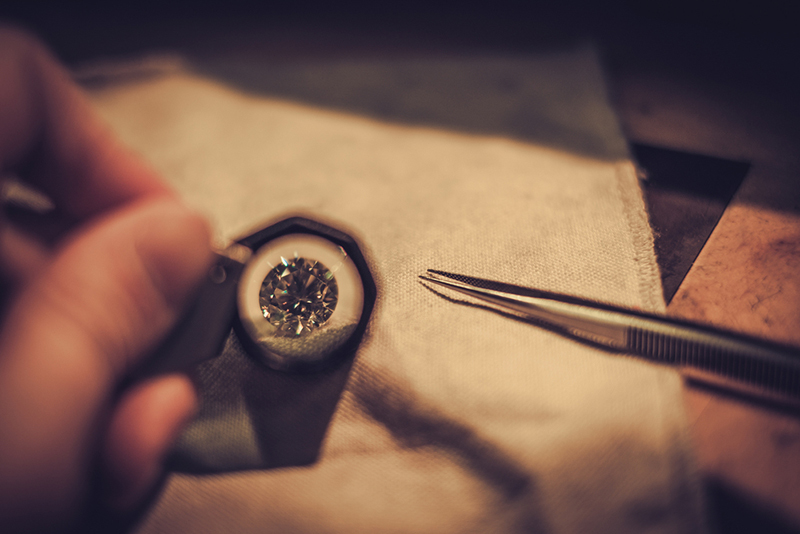Sponsored Content
You’ve probably been there: Your great aunt Ethel wills you a diamond brooch that’s been in the family for generations, with an attached note written in a shaky hand saying it’s probably worth thousands of dollars. Only problem is, you’re really not into Victorian jewelry and you need to pay your property taxes. So, you can get it appraised, and maybe sell it, right? (dear departed Ethel will never know.)
Except that’s not the only problem—the real challenge is getting a fair and accurate appraisal. And it’s a challenge faced by many.
According to online luxury auction house Worthy, there are 27 types of appraisals that suit different purposes, including those for tax purposes, for insurance purposes, and for reselling purposes, either wholesale or retail. And with a jewelry appraisal, both the precious metals and gems are considered.
Oh, and about that diamond—that can get you in the weeds, too. There are four elements to diamond jewelry grading: carat, cut, color and clarity. Gradings are carried out in gemological laboratories like GIA and IGI by certified professionals. And you can’t really know the estimated value of the piece unless you know your stone’s 4 C’s.
But how things turn out also depends a lot on which jewelry store you’re dealing with to get the appraisal, whether it’s a gem or that box of old silver or gold jewelry.
A few years ago, The Baltimore Sun reported on people selling gold and interviewed a man who said that he had been offered $42 for a handful of unwanted jewelry at one jewelry store. But when he came to a large, established, jeweler in Lutherville, he was offered $420.
That scary first store the guy had visited will go nameless, but the store with the fair offer was Smyth Jewelers, which prides itself on its customer service and loyal clientele.
“That was a reflection of just how we do business,” says owner Tom Smyth, “and when our associates see us being honest to customers, it trickles down to the entire staff.”
And choosing the right jeweler is equally important on the flip side—buying—as South Carolina transplant Greg Alexander can attest.
“Shortly after I moved to Baltimore, I needed to buy a christening gift for my niece as her godfather,” he recalls. “I asked a co-worker where I should go to buy such an important gift, and she recommended that I go to Smyth, as she said they have wonderful gifts and will help me decide what to buy. But my budget was limited, and I assumed that there would be little in my price range,” he admits. “I was pleasantly surprised. An associate reassured me that she would help me find the perfect gift without breaking the budget, and she was right.”
The goal of the best stores, of course, is not only to earn that word-of-mouth reputation, but also to create customers for life—generations of them—and Smyth is a good example of that.
“Since we’ve been in business for over 100 years, I am now selling to the grandchildren of past customers,” says Smyth. “They tell me, ‘You sold a ring to my grandfather and my father.’” He says with a chuckle, “It makes me feel pretty old.”


